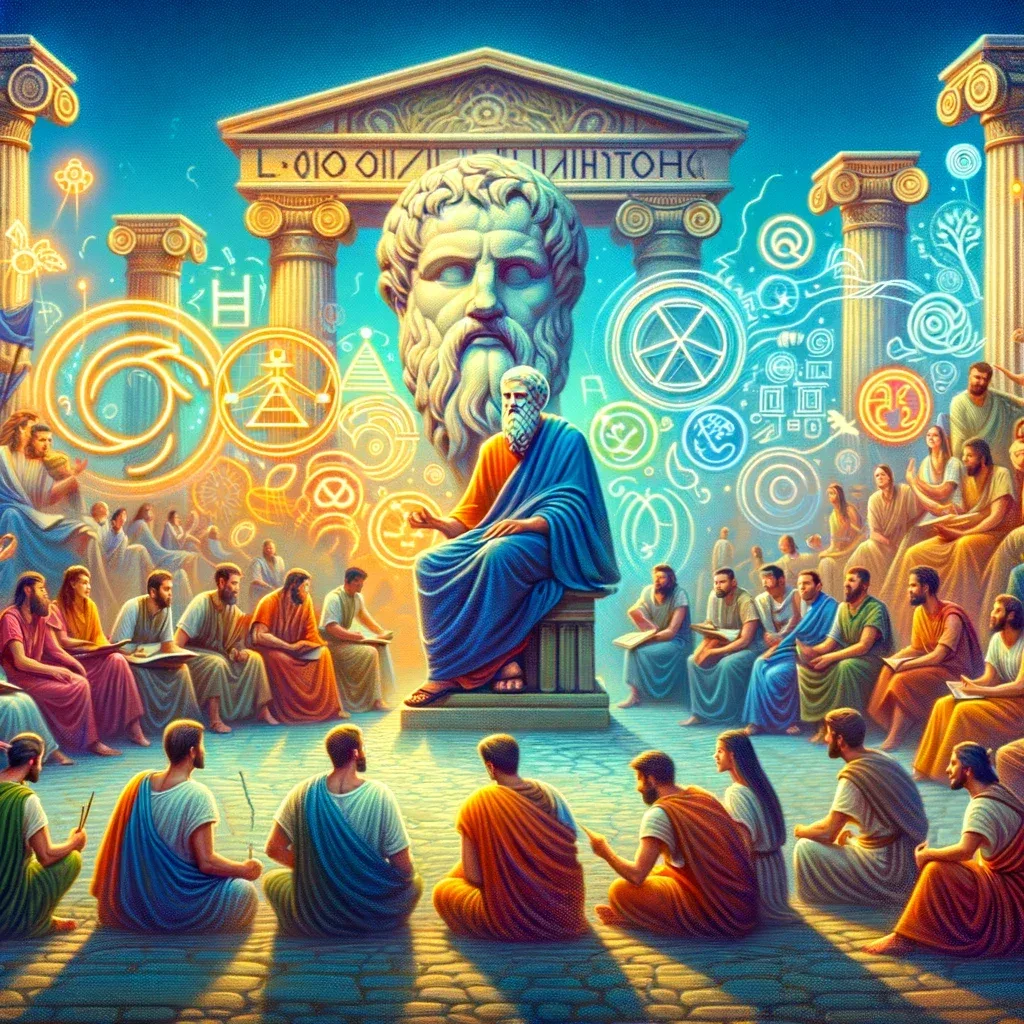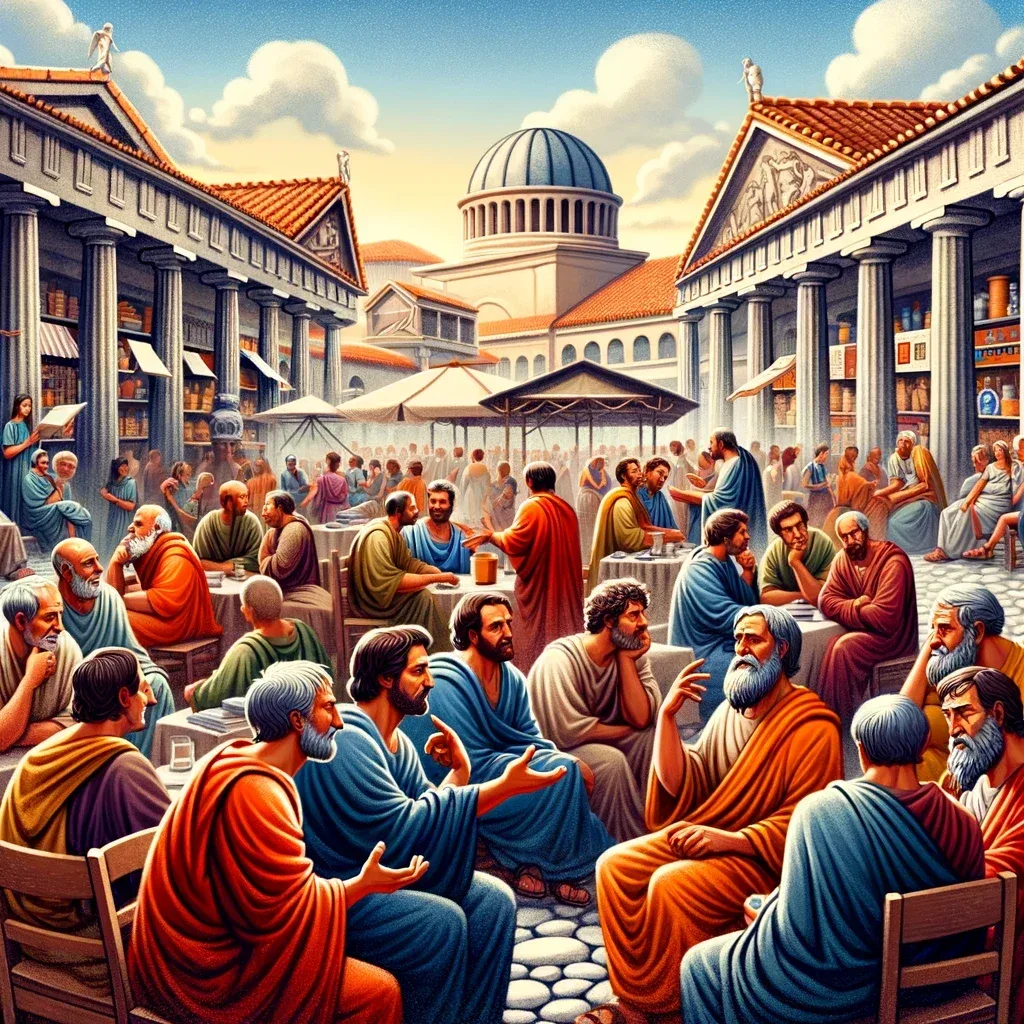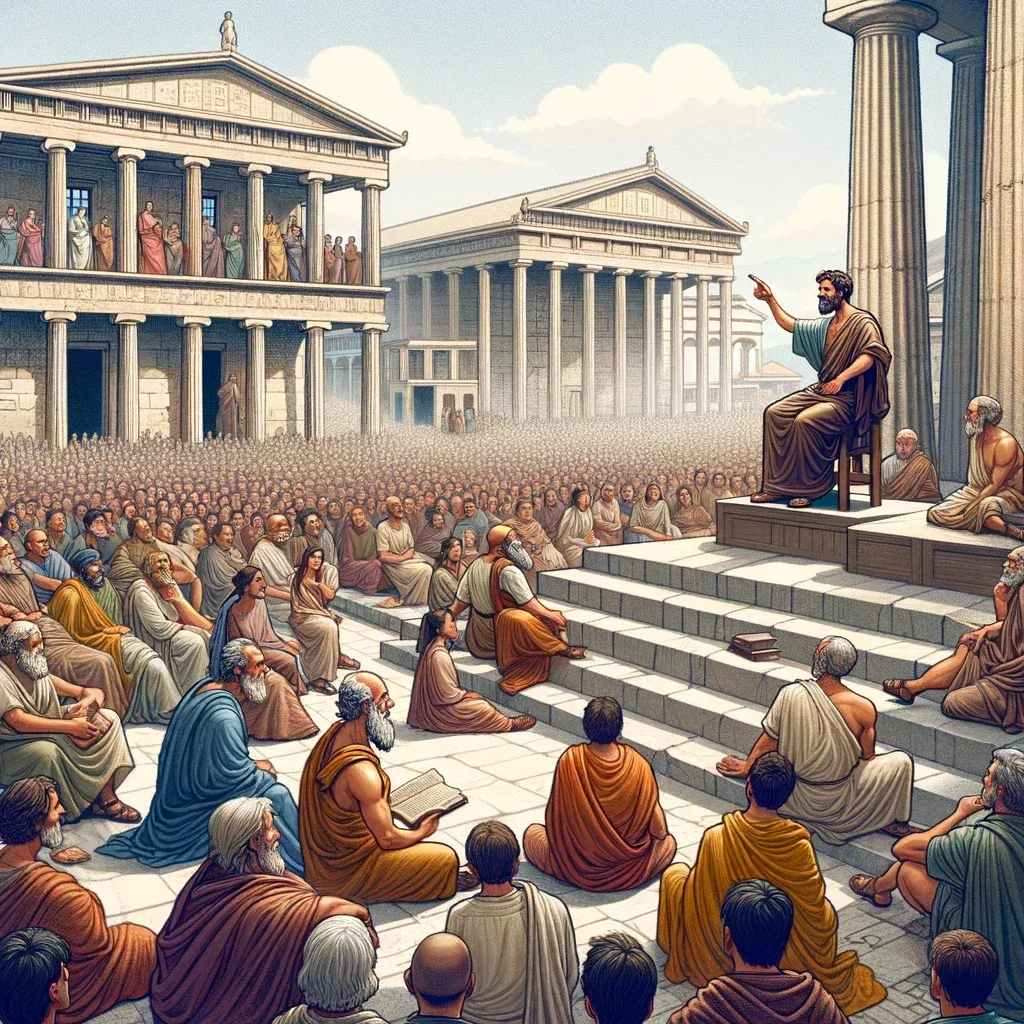Understanding reality from a Stoic perspective is an issue deeply rooted in ancient philosophy, but it is still relevant today. Stoicism, a school of thought founded by Zeno of Cicius in the early third century BC, offers a unique and influential approach to understanding the nature of reality. This article aims to explore the Stoic conception of reality, addressing aspects such as logic, physics, and ethics, central elements of this philosophy.

Reality According to Stoic Physics

The Rational and Determined Universe
The Stoics viewed the universe as a coherent, rationally ordered whole. For them, the cosmos was permeated by a 'logos' or divine reason, which determined the course of events. This 'logos' was, in fact, an active and creative force, sometimes identified with destiny or providence. For the Stoics, everything in the universe, including human events, follows a divine and rational plan.
Nature and Causality
Nature, in Stoic thought, is an interconnected system where everything happens for a reason. They believed in a chain of causes and effects, where each event is the result of previous causes and, in turn, becomes the cause of future events. In this view, even human actions are seen as part of this great causal fabric.
The Interconnection Principle
The Stoics also conceived of reality as a unified organism, where all parts are interconnected and dependent on each other. This holistic view of the universe includes the belief that human beings, as part of nature, are intrinsically linked to everything that exists.
Stoic Ethics and Reality

Good and Virtue
In Stoic ethics, the conception of reality is intrinsically linked to good and virtue. For the Stoics, living in accordance with nature means living virtuously. Virtue, understood as knowledge, is the only true good and the key to achieving happiness.
Acceptance and Control
A crucial aspect of Stoic ethics is the distinction between what is within our control and what is not. The Stoics argued that we should accept the elements of reality that we cannot change (such as external events) and focus on what we can control (such as our reactions and attitudes).
Search for Tranquility
The Stoic conception of reality emphasizes the search for ataraxia, or tranquility of the mind. This is achieved when we live in harmony with nature and accept the natural course of things, avoiding unnecessary suffering caused by irrational desires and aversions.
Stoic Logic and the Perception of Reality

Rationality and Perception
Stoic logic plays a fundamental role in the way we perceive and interpret reality. For the Stoics, rationality is a distinctive characteristic of human beings, allowing them to understand the logical order of the universe.
Judgments and Assent
The Stoics believed that our perceptions can be true or false depending on the judgments we make about them. Thus, reality is partially shaped by the way we assent to our perceptions.
The Importance of Discernment
For a Stoic, the ability to correctly discern between true and false perceptions is essential to living in accordance with nature. This involves the constant practice of examining and critically reflecting on our experiences and beliefs.
Conclusion
The Stoic conception of reality is multifaceted, combining elements of physics, ethics and logic. It offers a worldview where everything is interconnected and governed by a universal reason. This vision implies a way of living focused on virtue, discernment and acceptance of what life offers us. Through understanding Stoic ideas, we can gain valuable insights into how to face life's challenges with balance and wisdom.

FAQ: Understanding Reality from the Stoic Perspective
Below, we present a detailed FAQ to clarify common questions about the Stoic conception of reality.

1. What is the 'logos' in the Stoic view of reality?
In Stoic philosophy, the 'logos' refers to the divine reason or logic that permeates and governs the universe. It is an active and creative force that determines the course of events, ensuring that everything occurs according to a divine and rational plan.
2. How do the Stoics view nature and causality?
Stoics believe that nature is an interconnected system, where each event is the result of previous causes. They see everything, including human actions, as parts of a large chain of causes and effects.
3. What is the importance of ethics in the Stoic conception of reality?
In Stoic ethics, reality is understood in terms of living in accordance with nature and pursuing virtue. Virtue is seen as the only true good, and living virtuously is considered the path to happiness.
4. How do the Stoics differentiate between what is and what is not in our control?
Stoics argue that we should accept aspects of reality that we cannot change, such as external events, and focus on what we can control, such as our own reactions and attitudes.
5. What is ataraxia in Stoic philosophy?
Ataraxia, in Stoic philosophy, refers to the tranquility of mind achieved by living in harmony with nature and accepting the natural course of things, avoiding unnecessary suffering caused by irrational desires and aversions.
6. What is the role of logic in the Stoic perception of reality?
Stoic logic is fundamental to how we perceive and interpret reality. It helps us discern between true and false perceptions and shape reality through the judgments we make about our experiences.
7. How do the Stoics view the interconnectedness of reality?
Stoics consider reality as a unified organism, where all parts are interconnected and dependent on each other. This holistic view includes the belief in the intrinsic connection between human beings and nature.
8. How does Stoic reality influence the pursuit of happiness?
In the Stoic view, happiness is achieved by living in accordance with nature and pursuing virtue. Stoic reality influences this search, as it emphasizes the importance of acceptance, control of personal reactions and virtuous living.
9. What is the relationship between destiny and freedom in Stoic philosophy?
Stoics believe that, although destiny determines the course of events, human beings have the freedom to choose their reactions and attitudes, making freedom a matter of alignment with universal reason.
10. How is Stoic philosophy relevant in modern life?
Stoic philosophy is relevant in modern life as it offers a practical approach to facing challenges and adversity, emphasizing the importance of self-control, resilience and a clear perception of reality.






